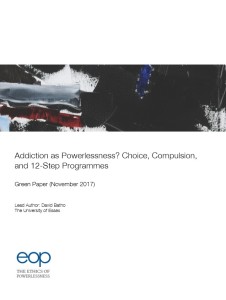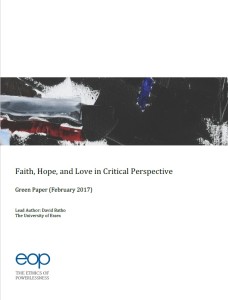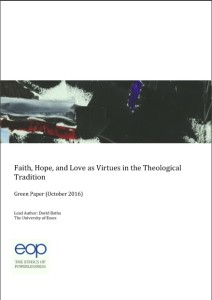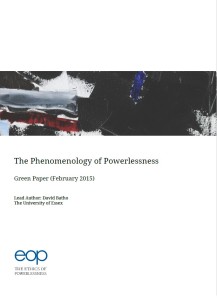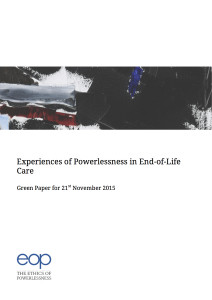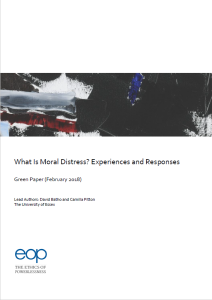
The term ‘moral distress’ entered nursing literature in 1984 when Andrew Jameton first described the phenomenon. According to Jameton, moral distress occurs ‘when one knows the right thing to do, but institutional constraints make it nearly impossible to pursue the right course of action’ (Jameton, 1984: p.6). As we shall see, this brief statement has come in for criticism, led to some confusion, and spurred subsequent attempts at refinement. Our aim in this Green Paper is to present a critical review of discussions of moral distress, propose a phenomenologically grounded analysis of the phenomenon, and sketch an array of possible ways of responding to experiences of moral distress as described.


